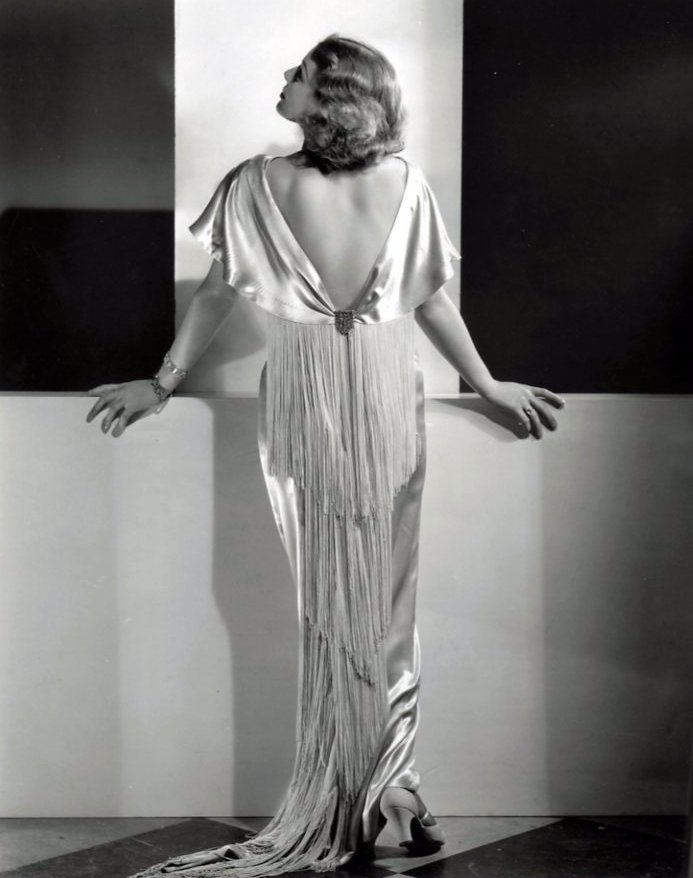
"I think the most important thing a woman can have - next to talent, of course, is... her hairdresser."
It's Joan Crawford's birthday, bitches!
All hail.
Joan Crawford (born Lucille Fay LeSueur, 23rd March 1904 - 10th May 1977)

CAMP: "A cornucopia of frivolity, incongruity, theatricality, and humour." "A deadly, winking, sniggering, snuggling, chromium-plated, scent-impregnated, luminous, quivering, giggling, fruit-flavored, mincing, ice-covered heap of mother love." "The lie that tells the truth." "Ostentatious, exaggerated, affected, theatrical; effeminate or homosexual; pertaining to or characteristic of homosexuals."

"I think the most important thing a woman can have - next to talent, of course, is... her hairdresser."
It's Joan Crawford's birthday, bitches!
All hail.
Joan Crawford (born Lucille Fay LeSueur, 23rd March 1904 - 10th May 1977)



"If you remember, McGyvers gave me 24 hours to close. I drew out my own money, paid off my boys... and I'm closed. You can't buy a drink or turn a card. I'm sitting here in my own house, minding my own business, playing my own piano. I don't think you can make a crime out of that."
"That's a lot of man you're carryin' in those boots, stranger! You know, there's something about a tall man makes people sit up and take notice."
"A man can lie, steal... and even kill. But as long as he hangs on to his pride, he's still a man. All a woman has to do is slip - once. And she's a "tramp!" Must be a great comfort to you to be a man."
"There's only two things in this world that a 'real man' needs: a cup of coffee and a good smoke."
"Never seen a woman who was more of a man. She thinks like one, acts like one, and sometimes makes me feel like I'm not."
Emma: "I'm going to kill you."
Vienna: "I know. If I don't kill you first."

No money was lavished on the production. The action centres on a two-story saloon "outside town," but we never even see "town," except for a bank facade and interior set. So sparse are the settings that although the central character (Joan Crawford) plays the tavern owner and goes through a spectacular costume charge, we never see her boudoir - she only appears on a balcony above the main floor, having presumably emerged from the sacred inner temple.
A cheap Western from Republic Pictures, yes. And also one of the boldest and most stylized films of its time, quirky, political, twisted. Crawford bought the rights to the original novel, Nicholas Ray signed on to direct, and I wonder if they even openly spoke of the movie's buried themes. One is certainly bisexualism; Crawford's tavern-owner Vienna is, it is claimed, in love with "Johnny Guitar" (Sterling Hayden), but has not seen him in five years. She effortlessly turns tough hombres into girly-men, and her bartender observes to Johnny, "I never met a woman who was more man."

Her arch-enemy Emma (Mercedes McCambridge) is allegedly in love with "The Dancin' Kid" (Scott Brady) and is jealous because he is allegedly in love with Vienna ("I like you, but not that much," Vienna tells him). But there is hardly a moment when Emma can tear her eyes away from Vienna to glance at the Kid. All of the sexual energy is between the two women, no matter what they say about the men. Crawford wanted Claire Trevor for the role, but the studio, perhaps having studied the script carefully, insisted on McCambridge, who was not a lesbian but played one, as they say, in the movies.
That casting led to more Crawford bitch legends, as on the day when she threw McCambridge's costume in the middle of a highway. The chemistry of loathing is palpable, as it was between Crawford and Bette Davis in Whatever Happened to Baby Jane. Both women wear fetishistic black leather, silk and denim costumes that would have been familiar enough to students of 1954 pornography: The tightly corseted waists, the high boots, the long shirts, the tight bodices, the lash of lipstick; give us Meg Myles in Satan in High Heels.

McCambridge, said to be a "cattle baron" (not baroness), dominates her posse of cowboys and lackeys, standing before them in a wide, challenging stance. She's shorter than they are, but is always strutting in the front while they almost cower. Crawford often appears from above on her balcony, worshipped by the camera in low-angle, adored by her loyal employees, ordering Sam, her croupier, "Spin the wheel. I like the way it sounds."

Just watching the sparring between Crawford and McCambridge is enough to send you over the moon. As for the movie, it’s an absurdist’s dream — in one scene in which guns are drawn and tensions are high, the strapping Hayden enters the bar with a delicate tea cup in his hand. You watch the scene thinking, “Oh, no he didn’t.” But he did.Everyone in this film is larger-than-life - apart from the cowering "menfolk" of the mysteriously otherwise invisible town. Miss Crawford gives the performance of her life, acting for all the world as if she were in a top-billing George Cukor or Carol Reed masterpiece rather than a cheap Western; Miss McCambridge practically chews the scenery as she quivers and grimaces, spitting her venomous lines with relish; Mr Hayden barely suppresses a laugh as he assumes the "romantic cowboy hero" role normally reserved for John Wayne or Randolph Scott; and Ernest Borgnine is, well, Ernest Borgnine, really.































"It was because of Garbo that I left MGM. In her last picture they wanted to make her a sweater girl, a real American type. I said, 'When the glamour ends for Garbo, it also ends for me. She has created a type. If you destroy that illusion, you destroy her.' When Garbo walked out of the studio, glamour went with her, and so did I."










